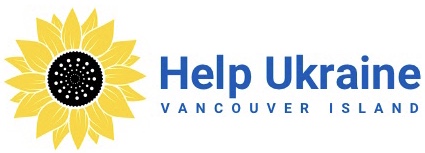This blog contains the unedited posts of Ukrainians who successfully moved to Victoria, BC, and/or their hosts. Content posted with permission. For privacy we are keeping them anonymous. The opinions expressed in the blog are those of the author and are neither supported nor endorsed by the moderators of this website.
While Canada’s cities, towns, and villages feel overall safe and prosperous, still somewhere under the surface there is the same set of social issues as in any other countries, including substances abuse, human trafficking, abusive relationships and domestic violence, homelessness, scammers and swindlers, theft, and so on.
Many or perhaps most of CUAET new arrivals have a number of vulnerabilities: the lack or absence of social contacts in Canada; sleep deprivation after the trip and due to the 6-10 hour time difference; low or absent English language proficiency; psychological traumas, stress, or depression because of the war and the necessity to leave their homes; unawareness how all things work in Canada; often, absence or lack of money to cover the basic needs considering the costs of living in Canada, 4 times higher than the costs of living in Ukraine; absence of a shelter to sleep; health issues which got more acute because of the war; accompanying minors, elderly, or other dependants; absence of a Canadian phone number and Internet access, and so on.
All these make CUAET people exposed to increased risks of mistreatment, exploitation, and emergency situations.
If upon arrival you get in an extreme situation where your life, health, well being, or freedom are immediately or persistently threatened by an individual or a groups of individuals, or a natural disaster, or other emergencies like hypothermia or being wounded or being unable to move, do not hesitate to dial 9-1-1 or ask any person you see around to dial 9-1-1 for you.
What you need to know about 9-1-1
– It can be dialed free from your Ukrainian sim card that will get connected to a local operator like Telus in Canada
– The number 9-1-1 works in every province and every town across Canada
– The 9-1-1 service has dedicated operators which speak different languages and translators, e.g. Ukrainian and Russian, you may just say “Ukrainian or Russian, please” and they’ll quickly connect you with someone who can accept your call
– The next thing to say to 9-1-1 straight away in a critical situation is your approximate location/address in Canada, so they can arrive fast
– Note that 9-1-1 also accepts and processes “silent calls”, that’s when the extreme circumstances around do not let you say anything over the phone, just dial the number. In this case, your location may be tracked via mobile signal monitoring
– As a newcomer, you will not be charged a fee in case of giving a false 9-1-1 alarm in non-critical circumstances
– 9-1-1 also accepts and processes calls from minors
– 9-1-1 does not accept or process text messages (sms)
For non-urgent help matters, call 2-1-1
2-1-1 is a nation-wide helpline for various social services, they also provide translators. Call then for general non-emergent assistance and advice, e.g. if you have nothing to eat, if you don’t know how to find a doctor, if you have no place to sleep or hide from the rain and snow, if you need a free translator, if you need to find a lawyer, etc. etc.
Be safe and be careful, never let anyone isolate your from connecting with other people, from your mobile phone and the internet, watch out for the “red flags” when meeting strangers, even among the hosts in Canada, act immediately if something unwanted or threatening starts happening around!
